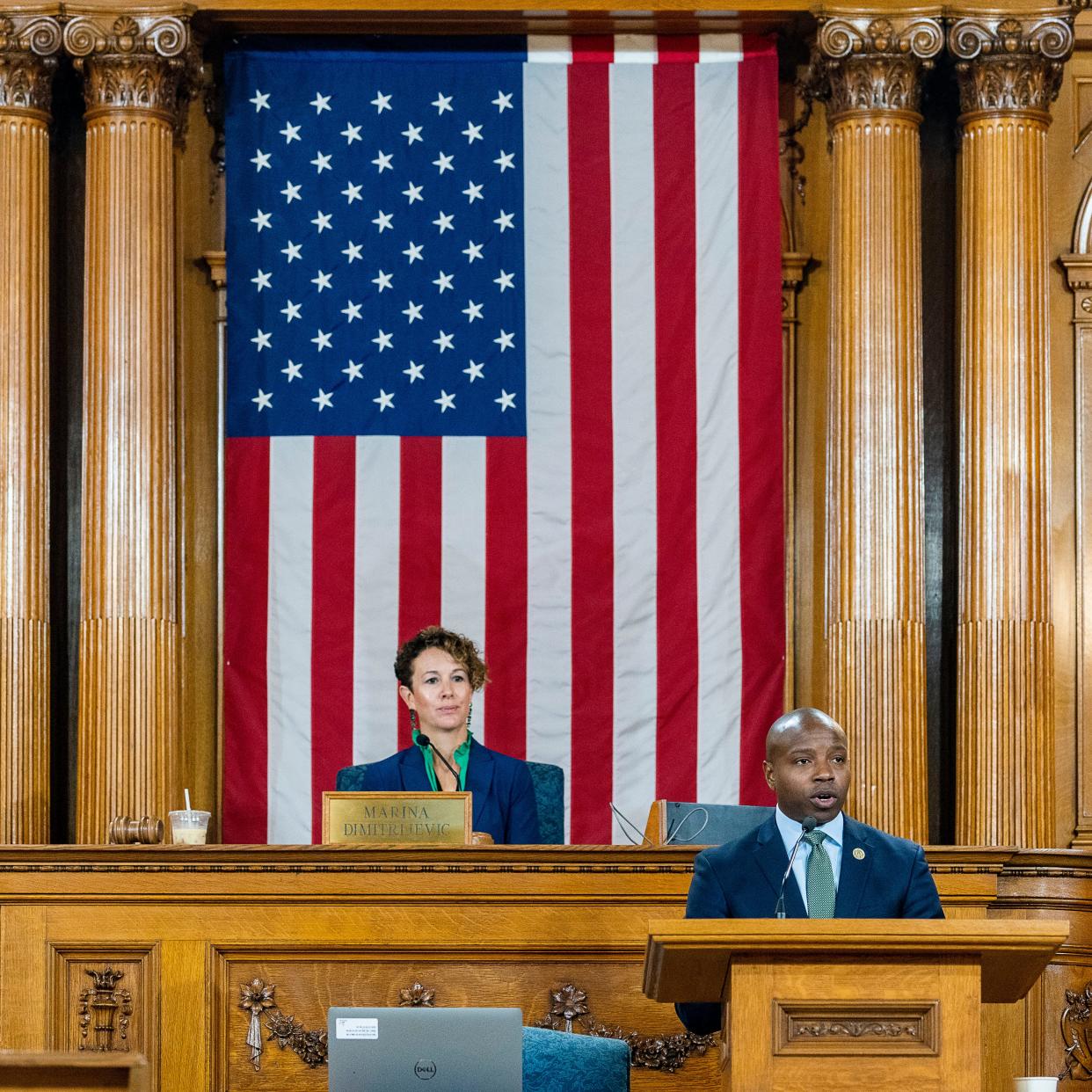Milwaukee could see budget gaps again in 2025. A new study offers the city these solutions

Advertising on City of Milwaukee property. Selling carbon credits and maybe a downtown city building. Raising fees for services and special events.
These were among the options presented to the city in a 200-plus page report released Monday at a meeting of the Greater Milwaukee Committee.
The analysis, funded by the GMC and conducted by Ernst & Young LLP, was completed to provide options for city officials to consider and further explore as they contend with the expected return of budget gaps as soon as 2025.
GMC President Joel Brennan described the report as a "launching pad" for more efficient service delivery and investment after decades of increasingly difficult budgets. And while there are "quick wins" identified in the report, many options also require additional study.
Mayor Cavalier Johnson said the city worked hard over the last year to find its fiscal footing — a reference to the passage of a sweeping local government funding law at the state that significantly boosted the city's revenue, including by allowing its elected leaders to implement a 2% local sales tax.
"That's not the end of the tale, though," Johnson said. "And so there are going to be further efficiencies that we'll look to make."
Changes to forestry, code enforcement among ways city could save millions, report says
The report determined that delivering services more efficiently could save the city as much as $140 million over 10 years.
"These options allow the city to deliver its core services in a more cost-efficient way and likely will afford opportunities for further innovation in city government," the report states.
Changes were proposed to a range of services, from bridge operations and maintenance to forestry services, city code enforcement, health services, and more.
Report suggests 'quick wins,' including selling ads on trash cans, carbon credits
The report also identifies "quick wins" that could be put in place relatively quickly.
They include reducing maintenance needs for city boulevards, exploring municipal advertising on trash containers and bins, and selling carbon credits for the city's trees. (Carbon credits are promises that companies or individuals can purchase to counteract their emissions by paying to plant or protect trees, according to the Associated Press).
Asked about options he was most interested in exploring, Johnson said he was curious about opportunities to share services with Milwaukee County government, such as on tree nurseries and greenhouses.
"We haven't ruled anything out, we haven't ruled anything in," he said.
Selling city buildings, privatizing parking meters are also among options presented
The report also contains options such as selling city assets like a downtown city building and privatizing the city's parking meters and streetlights.
It found the city building at 809 N. Broadway downtown is underused. The city could sell it and consolidate administration staff into the Frank P. Zeidler Municipal Building and City Hall. The sale would provide one-time revenue and future property taxes paid by a new building owner while also freeing the city of annual operating expenses and future upkeep costs, the report states.
Other local governments' efforts to earn more from parking through selling or leasing parking operations to private vendors have had mixed results, the report states.
Johnson said while he wanted to see all the options, there are still areas — like parking meters — on which the city should be cautious.
Increasing some fees for services, special events
The report found the city could better recover the costs for its services, including through fees.
It is currently underestimating the cost of providing services like sanitation, forestry, snow and ice control, the report found.
Still, there are drawbacks.
"Increasing fees will directly impact the cost to citizens and may be met with negative publicity. Therefore, the City must consider the impact that incremental fees could have on the City’s residents, particularly the most vulnerable groups, and try to minimize such impact," the report states.
The report also raised the option of changing the Milwaukee Police Department's overtime policy, though it noted that such changes would likely be covered by an existing union contract.
The city could also consider a special events policy that included an administrative fee, it found.
'Innovation director' would lead implementation of changes
Johnson said the person hired into the "innovation director" position he proposed in the 2024 budget would lead the effort to make some of the options presented in the report a reality.
"We'd be looking for that person who comes on in the innovation director position to help really lead the charge on the recommendations that are in the report, to do the studying on them and make recommendations to us to move forward on," he said.
Next year will be an important opportunity to make progress on this front, he said.
City officials in 2024 have a bit of breathing room to make decisions because of the combination of the new revenue enabled by the local government funding law and use of the city's remaining federal pandemic aid.
Alison Dirr can be reached at adirr@jrn.com. Find her on Twitter at @AlisonDirr.
This article originally appeared on Milwaukee Journal Sentinel: New report offers cost-saving changes to Milwaukee city government

